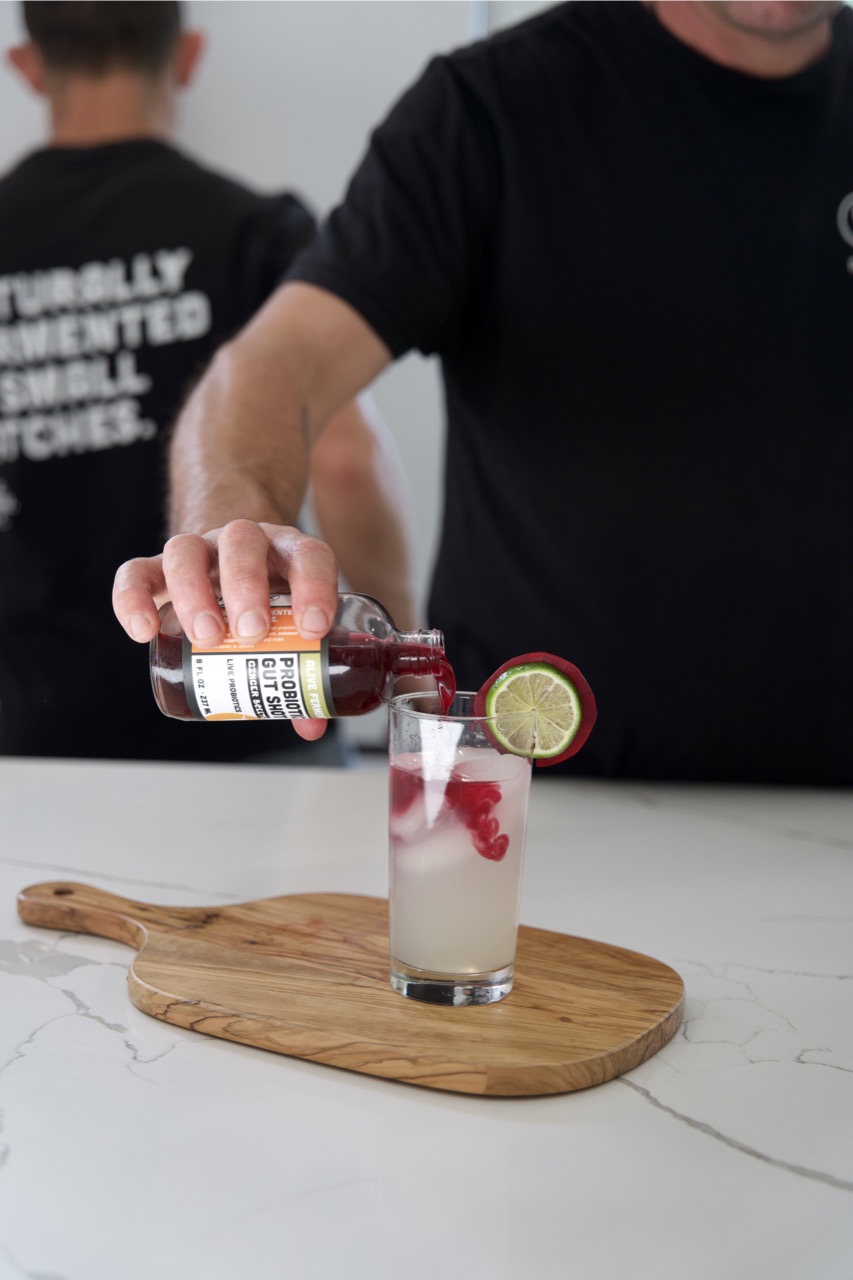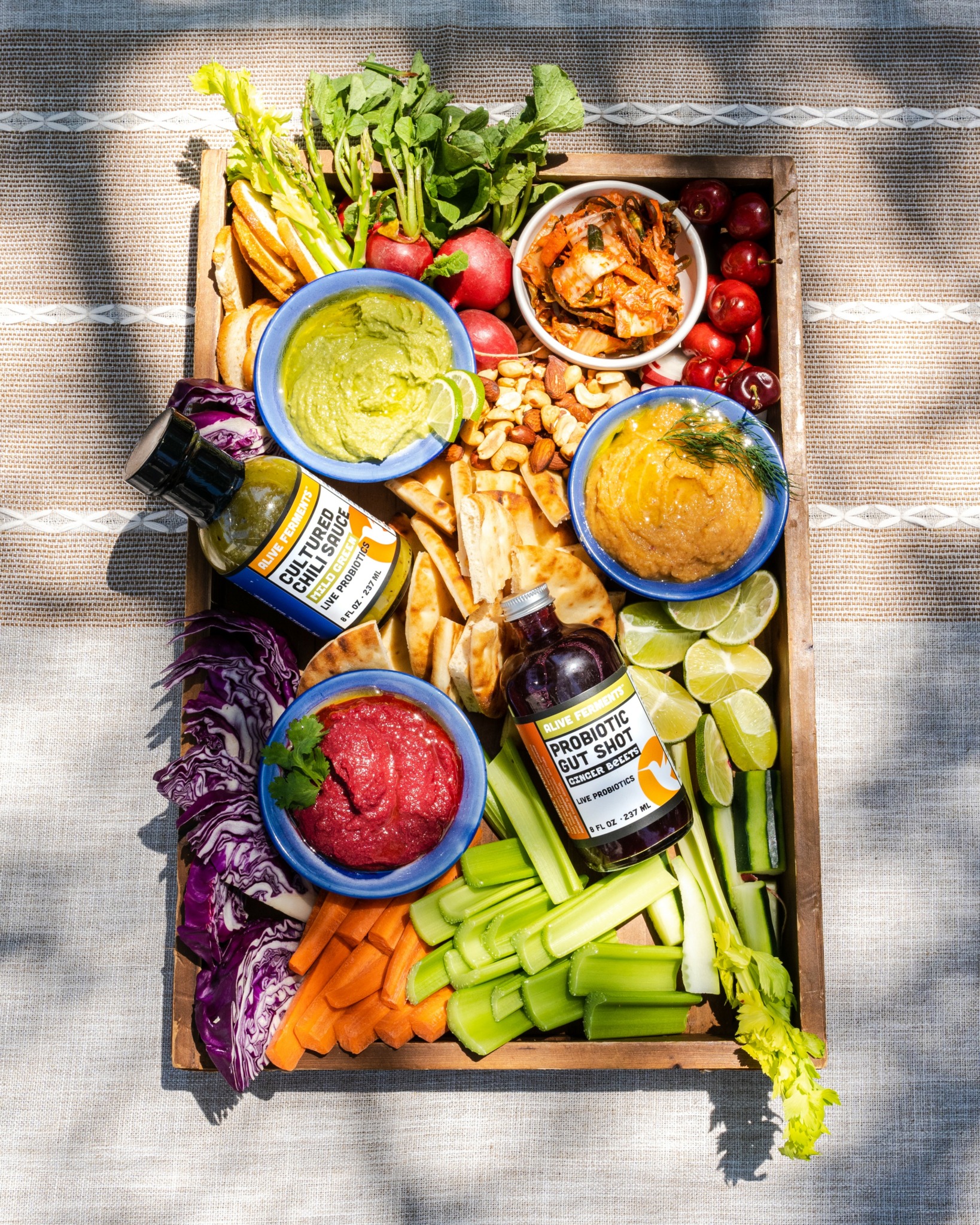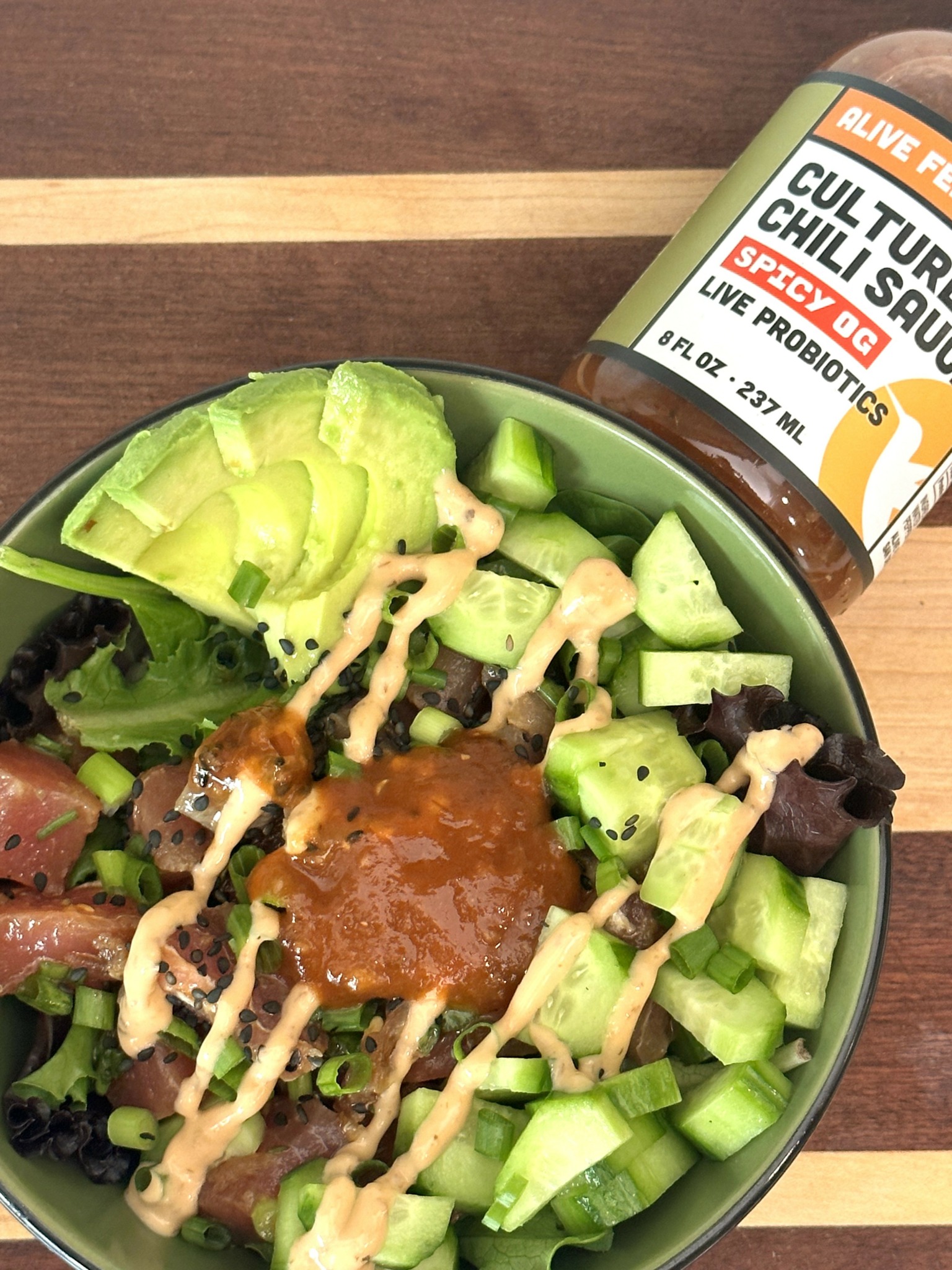We recently connected with Niccolo Fraschetti and have shared our conversation below.
Hi Niccolo, thanks for joining us today. Let’s jump right into the heart of things. Outsiders often think businesses or industries have much larger profit margins than they actually do – the reason is that outsiders are often unaware of the biggest challenges to profitability in various industries – what’s the biggest challenge to profitability in your industry?
People look at the food and beverage industry and see successful brands on grocery shelves with premium prices, assuming those margins are flowing to the makers or retailers.
The reality is often quite different—much of that markup gets absorbed by what’s in between, which can make or break a company overnight and send you from growth mode to survival mode in an instant.
I co-founded Alive Ferments, a functional fermented foods company, with my brother in 2020. We grew from 4 products to almost 20 by 2024, expanded rapidly across three states 8 months after launching our first product line, and thought we’d cracked the code.
Until unexpected distribution cost increases to retailers nearly erased everything we’d built.
We had the deductions and fees squared out, we thought we knew what we were getting into—but what happened to us wasn’t written anywhere, with no way to anticipate it.
The “Partnership”
In 2022, we onboarded with a major natural food distributor. Initially, it seemed perfect—national reach, new accounts every week, and the dream of being in hundreds of stores within no time.
Fast forward two years when retail prices jumped from $8-10 per unit to $12-15. We went from competitive to completely priced out. Retailers stopped ordering through our distributor entirely because our products were no longer viable on their shelves.our freight costs suddenly increased by 500% (these fall on retailers) . Not 50%—five hundred percent. We had no say in this decision—once our products are in their hands, they control the pricing to stores.
Overnight, our retail prices jumped from $8 per unit to $12-15. We went from competitive to completely priced out. Retailers stopped ordering through our distributor entirely because our products were no longer viable on their shelves.
We had invested so much time, effort, and resources to get on those shelves. Our only way to mitigate the damage and keep product moving was to offer deep discounts—for every case retailers ordered through our distributor, we’d deliver an additional case directly at minimal margin to bring their effective price down and keep it competitive.
Essentially subsidizing our own product, operating at razor-thin margins while our sales team, retailers and distributors were all profiting as usual.
We couldn’t afford to stay in distribution, but we couldn’t afford to leave either. Pulling out would trigger massive chargebacks, meanwhile we were bleeding cash doing direct deliveries just to prevent losing accounts.

Great, appreciate you sharing that with us. Before we ask you to share more of your insights, can you take a moment to introduce yourself and how you got to where you are today to our readers.
I co-founded Alive Ferments in 2020 with my brother, driven by a passion for fermented foods and a mission to make them accessible to modern Western diets. Growing up between California and rural Tuscany, I was surrounded by the traditional food preservation methods that have sustained communities for centuries—my parents would fill crocks with fermented vegetables, our neighbors had their made cured meats and wines—all of this would last through winter months in the cellar.
As kids, we naturally resisted these “awkward” foods our parents tried to sneak into our meals. But as I matured and spent years traveling the world, hopping from country to country and following my passions, I began connecting the dots.
I noticed my immune system was incredibly robust, I never had digestive issues, and medicine cabinet visits were rare. I became fascinated by fermented foods across different cultures—from Italian prosciutto to Korean kimchi—and started experimenting in my own kitchens wherever I lived.
What We’re Building
At Alive Ferments, we specialize in manufacturing innovative fermented products with approachable flavors that promote gut health. Unlike traditional fermented foods that can be intimidating or too acquired for many palates, we create products with unique yet familiar flavor profiles that appeal to a lot more people. We’re essentially bridging the gap between this ancient practice and modern taste preferences.
Our diverse range includes probiotic condiments, fermented vegetables, hot sauces, and gut tonics—all naturally rich in probiotics and beneficial compounds, crafted with simple plant-based ingredients, free from additives and added sugars. In an industry saturated with chemically compromised products, we offer a valuable alternative with natural, nutrient-packed offerings.
Our Innovative Approach
What sets us apart is our scientific approach—we want to know the CFU counts and dominant strains in every product, and we want our customers to know what they’re getting. Not only the ingredients, but also the specific strains, so they can choose not only by flavor but by the science behind it. We recognize that many people haven’t developed a palate for traditional fermented foods like kimchi, so we’ve formulated flavors that feel familiar while delivering all the gut health benefits. We’re not just selling products—we’re advocating for a lifestyle that integrates these nutrient-rich foods for better health and a deeper connection to what we consume.
Our production process reflects our values: we craft our products in small batches with passionate care and attention to quality and flavor. We love finding creative ways to eliminate food waste—especially when food is perfectly fine to eat, as with fermented foods. When the probiotics naturally decline after our 365-day shelf life, we upcycle these products into fermented seasonings that are even tastier and full of beneficial metabolites, locking in flavors and nutrients with a very long shelf life.
This approach reduces food waste, increases margins, and creates versatile products that expand our customers’ options.
Education and Transparency
Beyond manufacturing, we’re committed to education and transparency. Too many people turn to unregulated supplements when the benefits of probiotics are within easy reach through real food. We love teaching people about the connection between gut health and overall well-being, empowering them to make informed, health-conscious choices.
What I’m Most Proud Of
I’m most proud of staying true to our mission despite the challenges of scaling a food business—completely bootstrapped, with amazing support from people who believed in our mission. We’ve formulated over 20 products, expanded across three states, and maintained our commitment to quality and education throughout. Even when facing obstacles, we refused to compromise on our values or our vision of bringing the benefits of fermented foods to more people.
Looking Forward
We’re currently available online direct-to-consumer and in grocery stores, with You can order online nationwide, and we’re in grocery stores throughout California, with some stores in Hawaii and Utah—though with our growing product line, you’ll need to shop online to see everything we make! We’re steadily expanding our retail presence, staying true to our values while building something that lasts. We’ll get there, alive and thriving! Our commitment extends beyond sales—we aspire to be a catalyst for positive change in dietary habits, promoting a healthier and more sustainable future where fermented foods are a staple in diets worldwide, contributing to healthier lives and a more sustainable planet.
We often hear about learning lessons – but just as important is unlearning lessons. Have you ever had to unlearn a lesson?
The Lesson I Had to Unlearn: “Trust the Experts and Let Them Handle It”
Growing up, I learned the value of traditional methods and working with established systems. When I co-founded Alive Ferments, a functional fermented foods company, in 2020, I carried this philosophy into business.
We grew from 4 products to almost 20 by 2024, expanded rapidly across three states, and I thought we’d cracked the code by following conventional wisdom—partner with the experts and let them handle what they do best.
The “Smart” Partnership
In 2022, we onboarded with a major natural food distributor. Initially, it seemed perfect—national reach, new accounts every week, and the dream of being in hundreds of stores within no time. We had the deductions and fees squared out, we reviewed all the policies and fine print, we thought we knew what we were getting into—but what happened to us wasn’t written anywhere, with no way to anticipate it.
When Partnerships Become One-Sided
Fast-forward two years when retail prices jumped from $8-10 per unit to $12-15. We went from competitive to completely priced out. Retailers stopped ordering entirely because our products were no longer viable on their shelves. Our freight costs suddenly increased by 500% (these fall on retailers). Not 50%—five hundred percent. We had no say in this decision—once our products are in their system, they control the pricing to stores.
We had invested so much time, effort, and resources to get on those shelves.
Our only way to mitigate the damage and keep product moving was to offer deep discounts—for every case retailers ordered through our distributor, we’d deliver an additional case directly at minimal margin to bring their effective price down and keep it competitive.
Essentially subsidizing our own product, operating at razor-thin margins while our sales team, retailers and distributors were all profiting as usual.
The Hard Truth
I had to unlearn, or at least question the belief that “letting the experts handle it” was always the smart business move. The lesson wasn’t that all partnerships are bad—it was that giving up control of critical business functions like pricing and customer relationships can put your entire company at someone else’s mercy.
You think you’re partnering when you’re actually just handing over control. I learned that sometimes the conventional wisdom that everyone follows isn’t right for your specific situation, but that “expertise” nearly cost us everything we’d built.
What I Know Now
We’re gearing up to build Distro—a collaborative distribution network that connects innovative health focused food brands with independent and specialty stores. In the meantime, we’re focusing on strengthening relationships with the retailers we have, expanding our online presence, and building connections with practitioners, nutritionists, and industry professionals.
Once we have the real expertise and resources, we’re going to tackle national distribution properly.
We want to create a platform for emerging brands to share resources while maintaining pricing control and direct retailer relationships. For brands, it means market access with cost sharing and real partnership. For retailers, it’s curated unique products at competitive pricing. For consumers, it supports local businesses and promotes healthier food choices.
The setback taught me that sometimes you need to reject conventional wisdom and build your own path, even when it’s harder. We’re steadily building our foundation, staying true to our values while preparing for something that lasts.
We’ll get there, Alive and thriving!
How’d you build such a strong reputation within your market?
Genuine Education Over Sales Pitches
Our reputation, while still in early stages, was built on one simple principle: we genuinely want people to understand what they’re getting when they buy our products. Hospitality isn’t just a business strategy—it’s who we are. When someone reaches out with questions, they get a real response, not a generic customer service email.
Meeting the Industry Where the Science Happens
From early on, we made it a priority to attend food and beverage expos, but we’ve also tapped into the biotech industry for exposure, discovery, and connections beyond our immediate industry.
At first, we were clearly the small guys in a room full of established players, but we showed up consistently and contributed to conversations. We weren’t there to pitch—we were there to learn, share what we’d discovered in our own fermentation work, and explore potential collaborations.
These connections opened doors, but more importantly, they validated our approach. When people see that you care about the actual science behind your products, you earn credibility that no amount of marketing can buy.
Transparency as a Competitive Advantage
While most companies in our space make broad health claims, we decided to go deeper. We want our customers to know not just the ingredients, but the specific strains in our products. We invested in testing to understand exactly what’s happening in our fermentation process—something many competitors skip because it’s expensive and complex.
When we share this information with customers, retailers, and industry professionals, it sets us apart. We’re not making vague health claims; we’re providing actual data about what’s in each jar.
The Italian Approach to Customer Relationships
My upbringing taught me that food is about more than nutrition—it’s about connection and community. When customers email with questions about fermentation, gut health, or how to incorporate our products into their diets, I try my best to respond personally. Yes, it’s time-consuming, and I could just use bots, but then we’d lose what makes it meaningful. Sometimes these turn into lengthy conversations about health journeys or DIY fermentation experiments.
While this approach doesn’t scale traditionally, it builds something more valuable than efficient customer service—it builds trust and genuine relationships.
Education Over Sales
We prioritize education alongside sales because informed customers become our best advocates. Too many people turn to unregulated supplements when the benefits of probiotics are within easy reach through real food. We spend time teaching people about the connection between gut health and overall well-being, empowering them to make informed choices. When customers understand the science behind what they’re buying, they value the products more and become repeat buyers.
Building Something Sustainable
Building reputation this way takes longer than traditional marketing, but it creates something sustainable—and honestly, it’s also a necessity because we’re bootstrapped and can’t afford big marketing budgets.
Our customers become advocates because they truly understand what makes our products different. Industry professionals respect us because we contribute to advancing science, not just capitalizing on trends.
In a market full of companies making health claims they can’t back up, being genuinely committed to science, education, and authentic customer relationships is becoming our biggest differentiator.
Contact Info:
- Website: https://Aliveferments.com
- Instagram: https://www.instagram.com/aliveferments/
- Facebook: https://www.facebook.com/aliveferments/
- Linkedin: https://www.linkedin.com/company/aliveferments/
- Youtube: https://www.youtube.com/@AliveFerments

Image Credits
None


